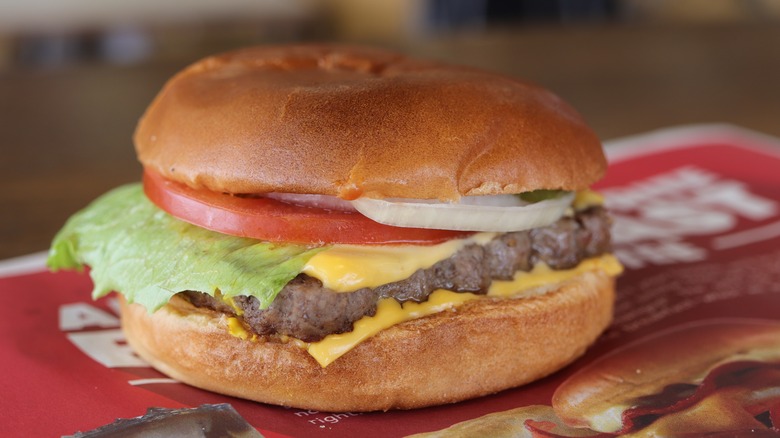Wendy's Possible E. Coli Outbreak May Be Worse Than We Thought
It seems that the outbreak of E. coli currently being linked to Wendy's sandwiches may be worse than previously reported.
Last Friday, the CDC released news of an E. coli outbreak that was linked to an unknown source. 37 illnesses — 10 of which required hospitalization — were reported across Michigan, Indiana, Ohio, and Pennsylvania. Apparently, the food item linking the cases was a Wendy's sandwich containing romaine lettuce.
At this time, the CDC is not encouraging consumers to avoid dining at Wendy's, explaining that the fast food chain has removed the possible affected romaine lettuce from restaurants in the region. As Wendy's uses a different type of lettuce for its salads, it's believed that only the sandwich lettuce may have been contaminated.
According to the Mayo Clinic, E. coli is a type of bacteria that normally lives in the intestines of humans and animals, though some strains are known to be more dangerous than others. Symptoms first appear three to four days after exposure to the bacteria and may include severe vomiting, nausea, diarrhea, and stomach cramps.
Michigan may have more than 100 cases
The New York Post is now reporting that the outbreak may be worse than what the CDC has shared up to this point, suggesting more than 100 cases of E. coli have now been linked to the outbreak, with 98 of these infections coming from Michigan. The Michigan Department of Health & Human Services released a statement last week sharing there have been 43 confirmed cases linked to the strain of E. coli reported in the outbreak; 55% of these positive cases reported consuming food from Wendy's.
The New York Post says that there are another 55 cases in the state still awaiting confirmation. The investigation into the E. coli outbreak is still ongoing, and the cause has yet to be confirmed. Despite this, some victims are already preparing to take legal action against Wendy's, and at least five Ohio residents sued the fast food chain in the last week.

